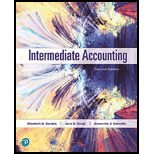
To explain: The conceptual framework for financial reporting.
Explanation of Solution
Financial reporting:
Financial reporting refers to the process of disclosure of the financial statements of a public trading company to its users regarding the company’s performance over a particular period of time.
The parties in the financial reporting are the Public Company Accounting Oversight Board (PCAOB), Financial Accounting Standards Board (FASB), and the Securities and Exchange Commission (SEC).
Conceptual framework describes the actual purpose of financial reporting. It provides the concepts, principles, and ideas to create the accounting standards and guidelines, which are uniform in nature. Its primary objective is to help the accounting standard-setters to create and review the standards.
At times when new standards are developed, the people involved in setting those standards are required to ensure that the projected standards satisfy the purpose of financial reporting.
Moreover, the information obtained through these new standards must have qualitative aspects to make the financial information more helpful and relevant.
Thus, the conceptual framework sets quality accounting standards to be used all across the globe.
Hence, the conceptual framework for financial reporting is explained as above.
Want to see more full solutions like this?
Chapter 2 Solutions
Intermediate Accounting (2nd Edition)
- On January 1, 2024, Sunfish Co. issued a $22 million, 8%, 6-year convertible bond with annual coupon payments. Each $1,000 bond was convertible into 35 shares of Sunfish's common shares. Shark Investments purchased the entire bond issue for $22.7 million on January 1, 2024. Shark estimated that without the conversion feature, the bonds would have sold for $21,013,098 (to yield 9%). On January 1, 2025, Shark converted bonds with a par value of $8.8 million. At the time of conversion, the shares were selling at $30 each. Required Prepare the journal entry to record the issuance of convertible bonds. Prepare the journal entry to record the conversion according to IFRS (book value method). Prepare the journal entry to record the conversion according ASPE (market value method).arrow_forwardRoseBud Motel Ltd. (RM) had 100,000 ordinary shares outstanding during all of 2025, all owned by the owner Johnny Rose. In 2023, RM issued $500,000, 3% non-cumulative preferred shares. Each $100 preferred share is convertible into one ordinary share. RM also had 6,000, $100 cumulative preferred shares outstanding that are each entitled to an annual dividend of $1.60. Each preferred share is convertible into two ordinary shares. RM’s net income for the year ended December 31, 2025, was $400,000. Its income tax rate was 20%. The annual dividend was declared and paid during 2025 on the cumulative preferred shares but not on the non-cumulative shares. Required Calculate RM’s basic EPS for 2025. Are the non-cumulative convertible preferred shares dilutive or antidilutive in nature? The cumulative convertible preferred shares? Support your answer with calculations. Calculate RM’s diluted EPS for 2025.arrow_forwardGive correct answer this general accounting questionarrow_forward
- Hogwarts Inc. (HI) had 80,000 ordinary shares outstanding on January 1, 2025. Transactions throughout 2025 affecting its shareholdings follow. February 1: HI issued 200,000, $10, cumulative 10% preferred shares. March 1: HI issued 40,000 ordinary shares. April l: HI declared and issued an 8% stock dividend on the ordinary shares. July 1: HI repurchased and cancelled 30,000 ordinary shares. October 1: HI declared and issued a 3-for-l stock split on the ordinary shares. December 31: HI declared $99,600 in dividends on the ordinary shares. Net income for the year ended December 31, 2025, was $600,000. Its tax rate was 40%. Required What was the weighted average number of ordinary shares outstanding in 2025? What was the basic EPS in 2025? If the preferred shares issued on February 1, 2025, were non-cumulative, what would basic EPS for 2025 have been?arrow_forwardFinancial Accounting Questionarrow_forwardPlease need answer the general accounting questionarrow_forward
- Can you solve this general accounting question with the appropriate accounting analysis techniques?arrow_forwardWhat is the gross profit on these general accounting question?arrow_forwardIn the table below, choose the financial instrument to list on the left side that best explains the example on the right side. Types of financial instrument to select from: financial asset, financial liability, equity, compound instrument, basic option, swap, forward, future, warrant, put option, or call option. Type of financial instrument Example A company contracts with an investment bank to pay the bank prime rate + 1% interest on $25 million of debt in exchange for receiving 5% from the bank. Company Abacus issues $10 million debentures with warrants to purchase shares for $10/share within 8 years. A company contracts to sell 100 barrels of oil at $110/barrel in March on the Chicago Mercantile Exchange. Note payable A company purchases the right but not the obligation to purchase 5,000 shares in another company at $15 each over a 12-year period. Company X contracts to buy 1,000 oz of silver at $40/oz on March 15,…arrow_forward
 Auditing: A Risk Based-Approach (MindTap Course L...AccountingISBN:9781337619455Author:Karla M Johnstone, Audrey A. Gramling, Larry E. RittenbergPublisher:Cengage Learning
Auditing: A Risk Based-Approach (MindTap Course L...AccountingISBN:9781337619455Author:Karla M Johnstone, Audrey A. Gramling, Larry E. RittenbergPublisher:Cengage Learning Auditing: A Risk Based-Approach to Conducting a Q...AccountingISBN:9781305080577Author:Karla M Johnstone, Audrey A. Gramling, Larry E. RittenbergPublisher:South-Western College Pub
Auditing: A Risk Based-Approach to Conducting a Q...AccountingISBN:9781305080577Author:Karla M Johnstone, Audrey A. Gramling, Larry E. RittenbergPublisher:South-Western College Pub


